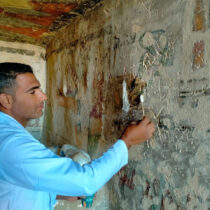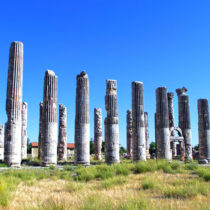In 2014, many academic institutions and museums will celebrate the bi-millennial of the death of Augustus with colloquiums, exhibitions and publications.
The life, the political ingenuity, and the era of the founder of the Roman Empire have not been honoured or discussed in this manner since 1937-1938, when an exhibition, the Mostra augustea della Romanità, at the instigation of the Fascist regime, celebrated the two-thousandth anniversary of the birth of the Emperor. Yet the outcome of the re-examinations in 2014 will not be complete if emphasis is not put on the enduring fame and fortune he experienced in the West, for this renowned figure created an empire which united, for the first time, the Mediterranean with the regions north of the Alps. The importance of this personage throughout our recorded cultural history makes a multidisciplinary approach essential.
It is therefore, as diverse field and period specialists, that we wish to invite our Belgian and foreign university colleagues to bring together their skills and knowledge – in the distinct fields of history, cultural history, literature, art history, semiotics, etc. – to retrace the multiple interpretations and appropriations of Augustus from his death to the present days.
A colloquium will take place in Brussels, November 6-7th, 2014 where historians, philologists, archaeologists and art historians of different periods are invited to present papers on various topics in accordance with the following guidelines:
•Receptions of Augustan politics and ideology and their appropriations
· Religious appropriations
· Representations of Augustus in mixed media (e.g. comics, television series)
· Augustus in literature and the arts, or in movies and on the Web
· Memory of Augustus as the “urban designer” who transformed Rome into a city of marble
The presentations, which will last for 30 minutes, can be made in French, English, Italian or German. Paper proposals (title and abstract with a maximum of 500 words) must be submitted to [email protected] by Friday February 28, 2014 at the latest.
Organizing Committee:
Pierre Assenmaker (F.R.S.-FNRS/UCLouvain)
Mattia Cavagna (UCLouvain)
Marco Cavalieri (UCLouvain/Università degli Studi di Firenze, SSBA)
David Engels (ULB, Bruxelles)
Costantino Maeder (UCLouvain)






